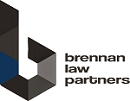The post COVID-19 Enrolment Contract
In light of the inundation of changes to learning environments and school operations around the country due to COVID-19, schools are finding themselves undertaking previously unconsidered and unprotected activities and offerings. Whilst classrooms are slowly returning to normal, the COVID-19 experience has no doubt created opportunities and ideas for learning and curriculum delivery which look considerably different to pre-COVID life. Whilst the vast majority of changes are immensely positive for the educational experiences of students, schools should take this opportunity to ensure that the enrolment documents that underpin their operations adequately cover the various aspects and risks associated with all school functions.
The Enrolment Contract
The enrolment contract is the foundation for the relationship a school has with its students and their parents/guardians. The enrolment contract is a legally binding document entered into between the school and parents/guardians for the provision of educational services. Despite its importance, the enrolment contract can be overlooked as merely an administrative document rather than a powerful tool to protect the school.
Given this, it is critical that the enrolment contract clearly and effectively sets out the terms which govern the school’s relationship with its families and protects the interests of the school. The contract must also comply with relevant consumer laws and regulations.
Necessary Protections and Terms
To ensure that your enrolment contract effectively binds the parents/guardians to the school’s expectations and operations, the terms must be properly understood at the time of entering into the contract. Terms of the enrolment contract should be clearly written and parents must have an opportunity to review the documents prior to executing it. Any unusual or onerous policies or expectations specific to your school should also be distinctly pointed out to parents before the contract is entered into.
Brennan Law Partners recommends that your enrolment contract contain clear terms which set out the school’s expectations with respect to the following issues.
Necessary information regarding students’ medical conditions and/or disabilities
To ensure that your school meets its obligations regarding reasonable adjustments for students with learning or physical disabilities and medical (including psychological) conditions, sufficient information must be gathered from parents/guardians about those students’ needs. The expectation of your school on parents to provide detailed information on these issues should be clearly addressed.
Fees
The enrolment contract should plainly set out your school’s expectations regarding fees – who is responsible for payment, what fees are payable, what happens in the event of disruption to education of the student and what steps the school will take to recover fees in the event of non-payment.
A clause clearly spelling out the school’s position on these matters greatly strengthens your ability to recover unpaid fees.
Family structures and family court orders
To ensure the safety of students, it is also critical that schools maintain copies of and understand the effect of family law orders. Accordingly, the enrolment contract should clearly state the obligation on parents/guardians to provide these orders and to update the school on any relevant changes.
By obtaining current family law documents, your school is better able to understand any obligations imposed regarding information provision to separated parents, student drop-off and pick-up and any other safety concerns that may be present.
Parent/guardian and student responsibilities, behaviour expectations and the discipline processes
It is also important to set out the overarching behavioural expectations of students and parents/guardians in their dealings with the school. By including terms regarding behaviour expectations in the enrolment contract, clarity is given to all parties about what behaviour will and won’t be tolerated by the school, and the disciplinary processes or consequences that will follow. This will protect you and your school if you seek to enforce those expectations and consequences on students or parents/guardians.
A parent/guardian and student code of conduct is a good way of doing this.
School’s policies and procedures
Critical and/or unusual school policies and procedures that parents/guardians and students are required to comply with should be brought to the attention of and made available to the parents prior to the execution of the enrolment contract. Doing so will incorporate them into the binding legal relationship and better protects the school if you are required to enforce them.
Privacy
It is crucial that schools clearly articulate their privacy expectations, policies and procedures regarding the collection, maintenance and use of sensitive information. The terms of the enrolment contract must comply with the requirements of the Privacy Act 1988 (Cth) and the Privacy Amendment (Notifiable Data Breaches) Act 2017 (Cth).
Breach and termination
Whilst it is rare that you would need to rely on this term, it is critical to have an articulated process for bringing about an end to the enrolment contract. Inclusion of this clause creates clear expectations of students and parents/guardians and sets out the consequence of their failure to meet school expectations. If the enrolment contract does not have such a clause (or the clause is not complied with), the school may be exposed to claims for discrimination and other adverse action.
How can Brennan Law Partners assist?
It is recommended that schools regularly review their enrolment contracts, particularly now given the significant changes to the operations of the school. If you have any concerns about your school’s enrolment contract, or if you are experiencing a contractual dispute, please contact us for tailored advice.
If you have any questions regarding any information in this BLP Brief, we welcome you to contact us at any time.
This is meant as a guide only and should not be taken as legal advice.







